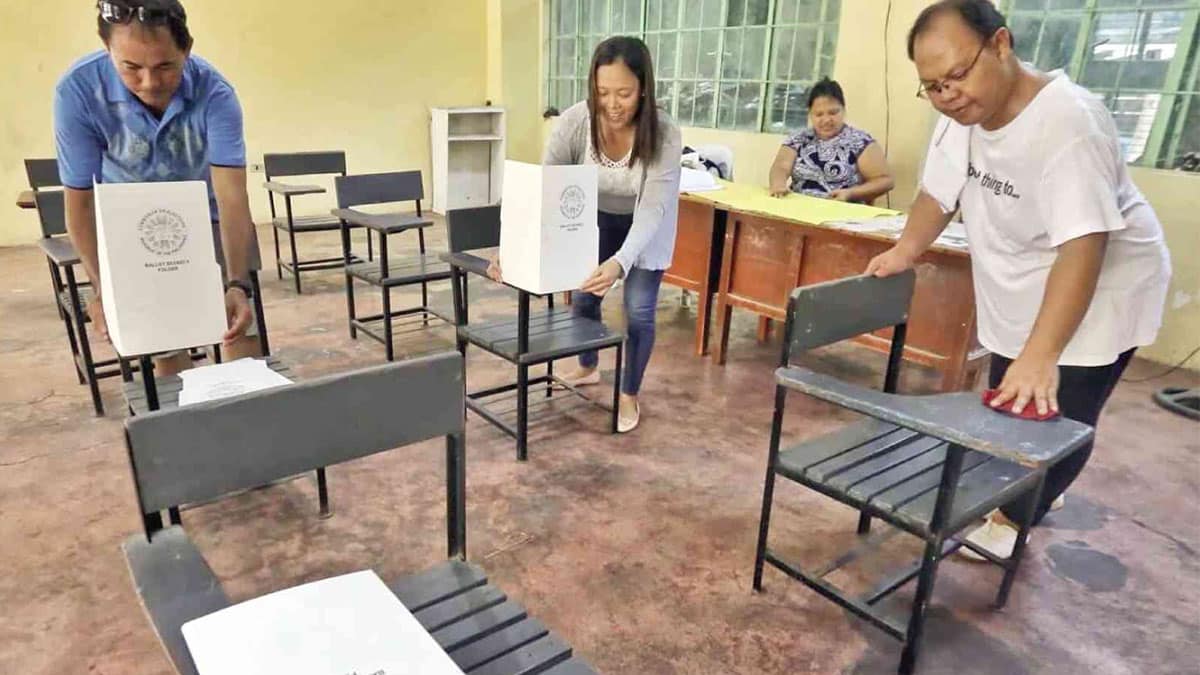CICC warns public of ‘prophets’ claiming to alter elections

Teachers prepare the election paraphernalia they received from the Cebu City treasurer’s office and the classroom to be used as a voting precinct for the 2019 midterm elections. (INQUIRER file photo / JUNJIE MENDOZA)
MANILA, Philippines — The Cybercrime Investigation and Coordinating Center (CICC) warns the public of “false prophets” promising to change election results in exchange for money.
This warning comes after the Commission on Elections (Comelec) Chairperson George Garcia filed a complaint against a vice mayoral candidate.
The candidate hails from the town of Reina Mercedes in the Isabela province.
He filed a cyberlibel case against lawyer Jeryll Harold Respicio for allegedly violating the Cybercrime Prevention Act.
On January 25, 2025, Respicio posted a video claiming that he can manipulate vote-counting machines and that backroom programs can alter election results.
“He is completely clueless. His theories are so far and offer misleading info,” said CICC Executive Director Alexander Ramos.
He explained that automated elections have three layers of security to protect the validity of election results:
“First, the machine is locked and cannot be altered once it has been programmed.”
“Second, the transmission is too complex to understand that there is a designated time when it can connect and where to connect.”
“Encrypted files pass a seven-layer security system and the receiving end will only receive packets of data, approximately 220KB of encrypted file from registered IP and devices in its system.”
“The third layer of security is the consolidation server, which is programmed to receive only encrypted files.”
The Bangko Sentral ng Pilipinas (BSP) protects its key.
Ramos reiterated that the automated election system (AES) for the May 12 elections is “too complex” to hack.


















